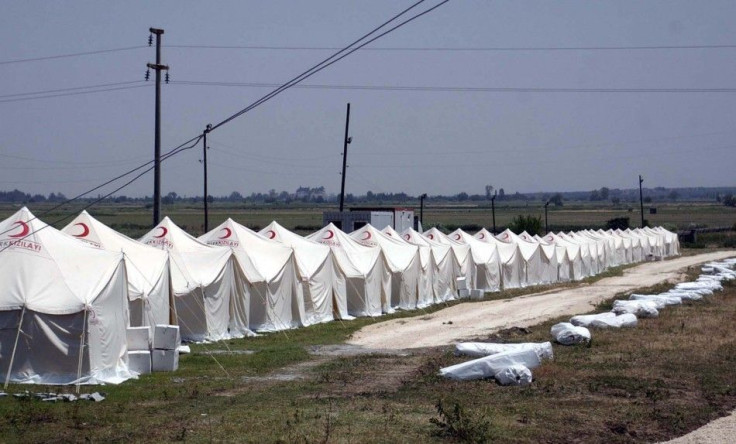Syrian Helicopters open fire to disperse protesters

Hardly a few days after Syrian civilians started fleeing the nation to find a safe place in Turkey border, Syrian helicopter gunships fired machineguns to disperse pro-democracy protests, witnesses said, in the first reported use of air power to suppress unrest in Syria's increasingly bloody three-month-old uprising.
The use of the aircraft came on a day of nationwide rallies against President Bashar al-Assad, as unrest showed no sign of reduction, despite the harsh crackdown by his authoritarian state.
The helicopters opened fire in a northwestern town after security forces on the ground killed five protesters, said the Syrian Observatory for Human Rights.
At least five helicopters flew over Maarat al-Numaan and began firing their machineguns to disperse the tens of thousands who marched in the protest, one witness said by telephone, a Reuters report stated.
People hid in fields, under bridges and in their houses, but the firing continued on the mostly empty streets for hours, said the witness, who gave his name as Nawaf.
Britain, France, Germany and Portugal have asked the U.N. Security Council to condemn Assad, though veto-wielding Russia has said it would oppose such a move.
Criticizing the Syrian government's actions, the White House said Friday's appalling violence had led the United States to back the European draft resolution at the United Nations. The Syrian government is leading Syria on a dangerous path, the White House said.
Foreign Minister Walid al-Moualem wrote to the Security Council accusing the opposition of violence and sabotage, Al Arabiya television said. Foreign governments were basing their views on inaccurate information, it said.
State television said earlier well-armed terrorist groups had burned police buildings and killed members of the security forces in Maarat al-Numaan, which lies 55 km (35 miles) south of Syria's second city Aleppo on the highway to Damascus.
Moualem's letter asked for U.N. help to combat extremism and terrorism. Damascus wanted dialogue with the opposition, the letter said.
Syrian authorities have banned international media and have repeatedly tried to portray anti-government protesters as armed and violent.
There were peaceful protests today (in Maarat) calling for freedom and for the downfall of the regime, one demonstrator said by phone. The security forces let us protest, but when they saw the size of the demonstration grow, they opened fire to disperse us.
During the protest, two officers and three soldiers refused to open fire so we carried them on our shoulders. After that, we were surprised to see helicopters firing on us.
The northwest border area, like other protest hotspots, is prone to tension between majority Sunni Muslims and Assad's Alawite sect, which dominates the Syrian power elite. The violence may reflect splits within the security forces, whose commanders are mainly Alawite and conscripts Sunni, said the report.
Activists said Syrian forces had shot dead at least 33 at rallies across the country after Friday prayers.
A U.N. spokesman said Secretary-General Ban Ki-moon had been trying to call Assad all week but was told that the president was not available.
Thousands of civilians have fled from the northwestern border area into Turkey, fearing security forces' revenge for incidents in which 120 troops were reported killed this week.
Local people said at least 15,000 troops along with some 40 tanks and troop carriers had deployed near Jisr al-Shughour.
Rights groups say over 1,100 civilians have been killed since March in the revolt to demand more political freedoms and an end to corruption and poverty.
© Copyright IBTimes 2025. All rights reserved.




















